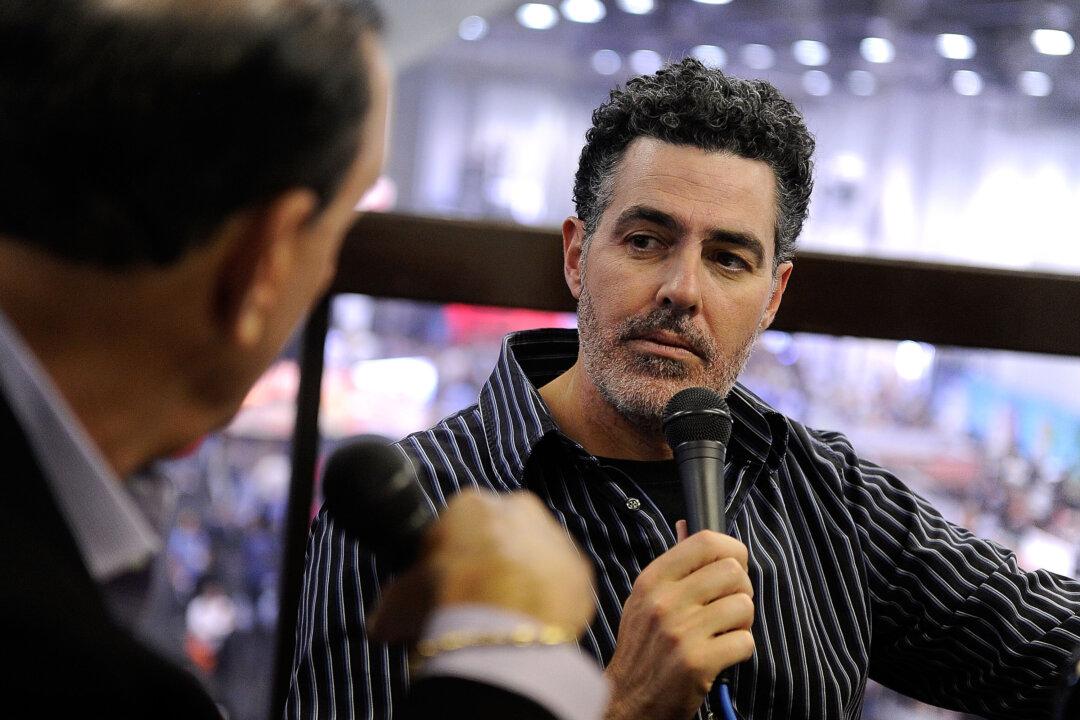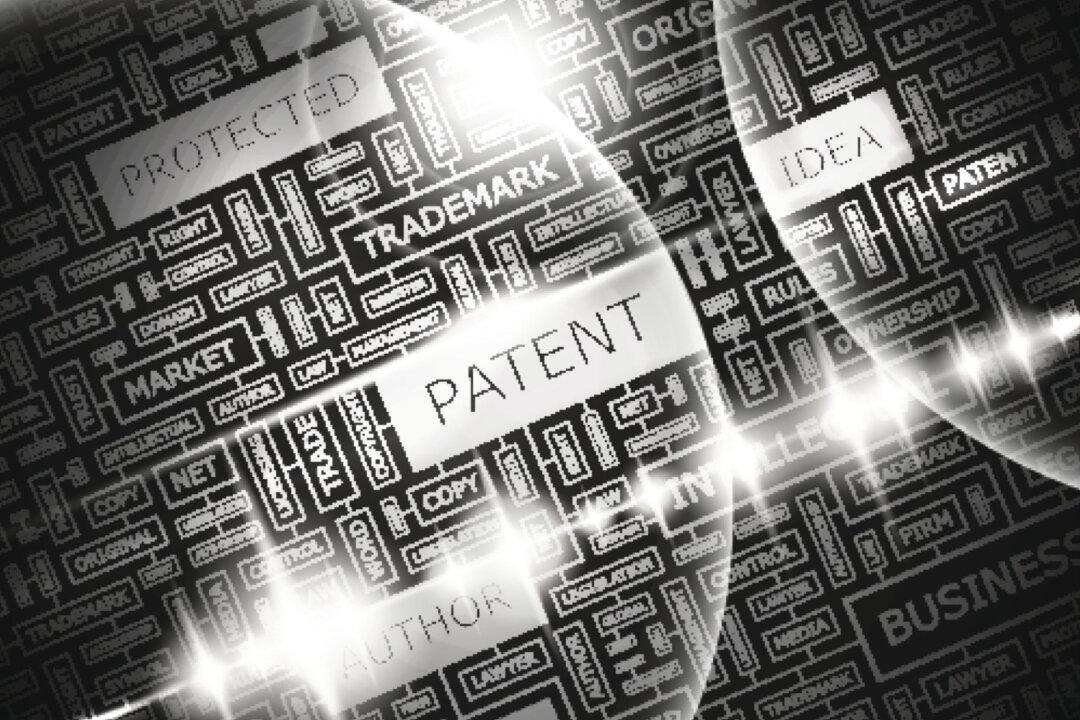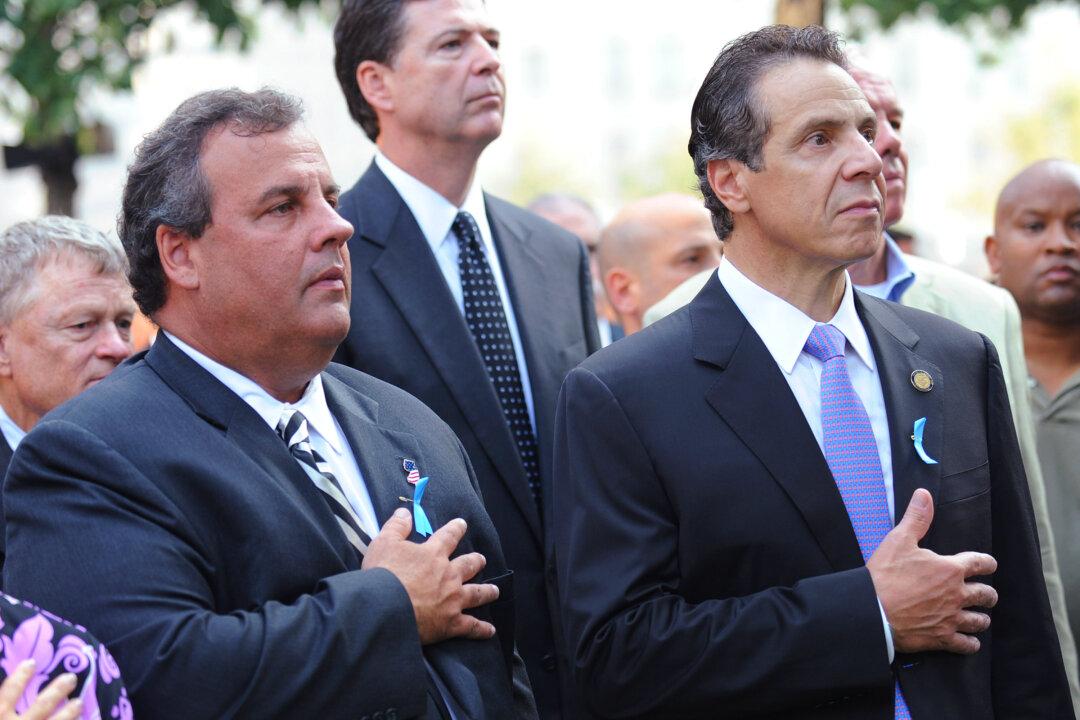California-based comedian Adam Carolla begins his offbeat, off-color, and highly popular podcasts by declaring, “Get it on. Got to get it on. No choice but to get it on.” Now he’s putting his money (and yours, too, if you’re willing to donate to the cause) where his mouth is by “getting it on” with a so-called patent troll—a company that holds patents but makes no products—in a legal battle that could affect the future of podcasting.
Carolla is one of a handful of highly visible podcasters being sued by a company called Personal Audio. The company’s owner, Jim Logan, claims that he invented the idea of podcasting back in the 1990s—well before the current technology employed by podcasters was available—and that everyone doing it now for profit owes him a payday. Logan is targeting some of the most successful podcasters in a legal battle that mirrors thousands of similar legal claims and highlights weaknesses in both our patent-granting procedures and our civil-litigation system.
Patent trolls are typically defined as companies that make no products but attempt to generate revenues through patents they hold. Often called “nonperforming entities,” these firms have in some cases purchased large portfolios of obscure patents and then searched for companies employing technology for which the patent troll might assert a claim of infringement—and demand a licensing fee. In other cases, these trolls are companies, like Personal Audio, whose businesses failed but now claim that a new version of that business—in this case, podcasting—is based on the firm’s patented ideas.
In a 2013 study, the Government Accountability Office (GAO) estimates that suits by nonperforming entities now make up 58 percent of all patent-litigation cases, up from just 24 percent in 2007. Many of these suits center on what the GAO calls “low-quality patents, that is, patents with unclear property rights, overly broad claims, or both.” As the GAO explains, holders of these kinds of patents can argue “that their patent covers (1) an entire technology when it may only cover a small improvement, or (2) [covers] future technologies that their patent did not originally intend to cover.”
Gaming the System
Examiners in the U.S. Patent and Trademark Office are supposed to weed out overly broad patent applications, but they haven’t kept up with the explosion of knowledge and innovation in certain fields and have been green-lighting patents that should have been turned down.
Personal Audio fits the profile of a company benefitting from broad, unfocused patents. Logan claims that he conceived of podcasting in the 1990s, when he hit upon the idea of recording people reading newspaper and magazine articles aloud and packaging the recordings on old-fashioned audio cassettes. The “magazines on tape” concept went nowhere, though, and the company stopped functioning in 1998—except to assert its patent rights.
Logan now claims that the idea of downloading “episodic” content to an audio player is covered under his patent for the business, and that people like Carolla owe him a fee. Don’t laugh. He’s already won an $8 million jury verdict against Apple for a patent covering audio players that allow users to design their own playlists. In that case, Personal Audio claimed that the music function of iPhones (and iPods and iPads) infringed on its patent for an “audio program player including a dynamic program selection controller.” Apple appealed the case and ultimately settled with Personal Audio for an undisclosed amount.
The Apple case highlights the risk that companies face when they go to trial over patent claims rather than settle. Juries, especially in certain parts of the country, are notoriously sympathetic to patent holders. “Jurors accord great respect to inventors,” observed trial strategy consultant Julie Blackman and two associates in a 2010 article in The Jury Expert. They often “personalize the cases, framing them as moral conflicts rather than business disputes.”
Plaintiffs maneuver to get their cases heard in sympathetic courts—a practice called venue shopping. In the case of patent-infringement suits, the Eastern District of Texas is the place to go: trolls file more patent cases there than anywhere else. Juries are sympathetic and judges tend to allow a greater percentage of these cases to go to trial, where the risks for the defendant rise considerably. Not surprisingly, patent trolls tend to locate in Texas so that they can file in the Eastern District. (Personal Audio is based in Beaumont, Texas.)
Legal Shakedowns
Our civil-litigation system—which, unlike those of most other industrialized countries, does not require the loser to pay costs for unsuccessful suits—also stacks the odds in patent trolls’ favor. Patent trolls are free to engage in legal shakedowns, threatening litigation against small businesses, for which the cost of even a successful court defense often proves ruinous. In 2011, for instance, Innovatio IP Ventures, a patent troll claiming to hold the patents on Internet Wi-Fi systems, sent letters to some 8,000 businesses, including small hotels and even local coffee shops, demanding fees of between $2,500 and $5,000 for the right to use Wi-Fi in their establishments.
This is where Carolla comes in. He’s decided to make himself the focus of the Personal Audio suit against podcasters. Told by his lawyers that it will take $1.5 million to defend against the troll’s claims, Carolla is using FundAnything.com to mount a financing campaign. He’s appealing to his listeners and those of other popular podcasts. “Normally people settle up with these guys because it’s so expensive to fight them,” Carolla said. “Well, guess what? We’re going to circle the wagons, band together, and come out throwing punches.” Otherwise, he warns, “We’re going to all fall like dominos.” The campaign has raised $300,000 so far, but it has a long way to go.
The problem is that Personal Audio and similar trolls are relentless. Because so many companies have decided to settle with it rather than battle in court, Personal Audio appears to have deep pockets. Suing is its business. It launched more suits against Apple when the tech giant debuted new products that the troll claimed violated its patents.
The only answer is federal reform. Last December, the House of Representatives overwhelmingly passed the Innovation Act, which would bar trolls from suing small companies that are just end-users, not makers, of a technology product. The bill even requires losers in some patent suits to pay up for court costs. The bill has flaws, but it’s a start. Now it’s up to the Senate to follow with a more comprehensive version, and quickly, or we won’t see anything change before the November elections.
Without reform, trolling for dollars will only get worse.
Steven Malanga is the senior editor of City Journal and a senior fellow at the Manhattan Institute. His latest book is Shakedown: The Continuing Conspiracy Against the American Taxpayer. This article originally appeared on the Manhattan Institute’s City Journal website.




